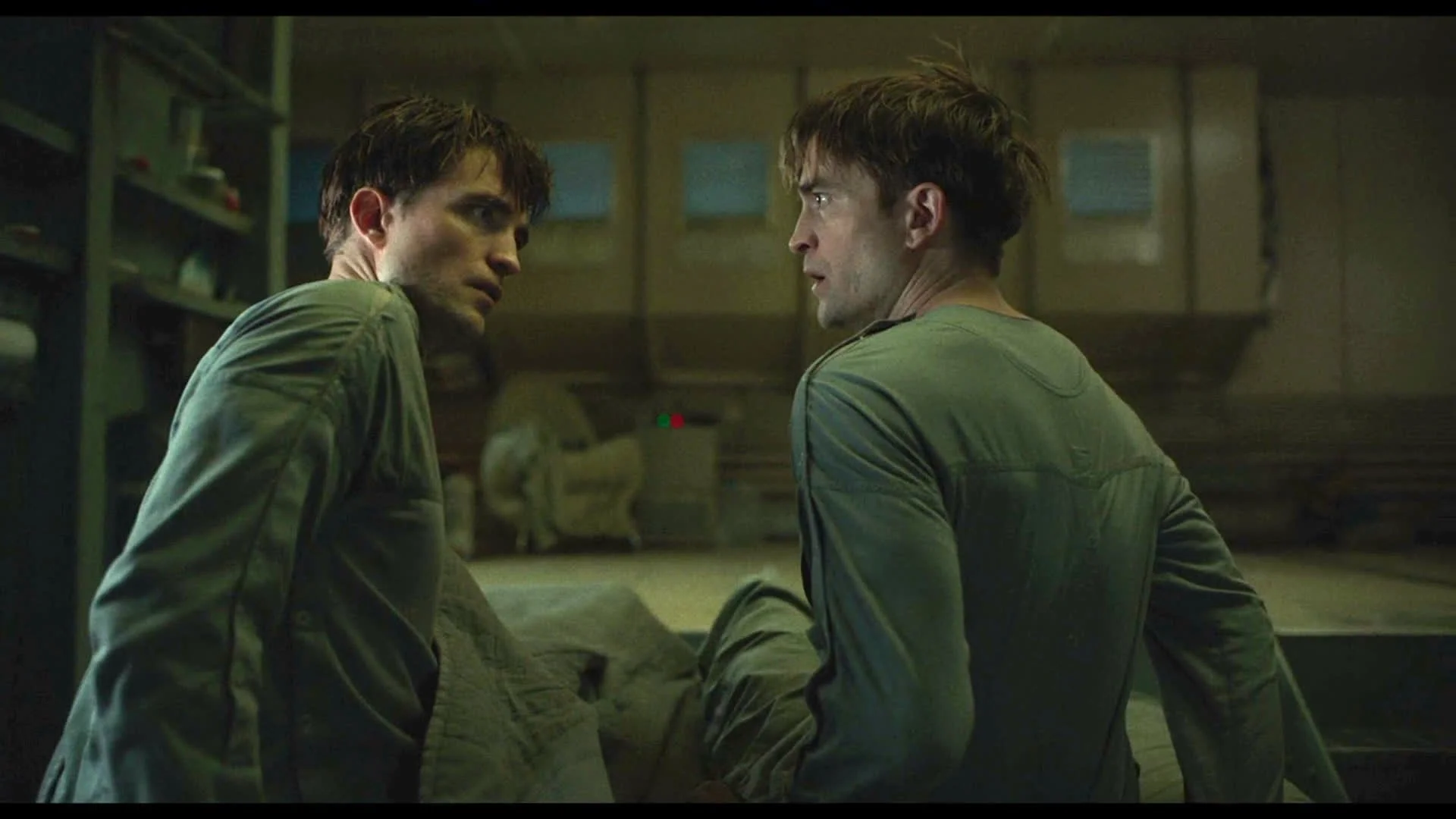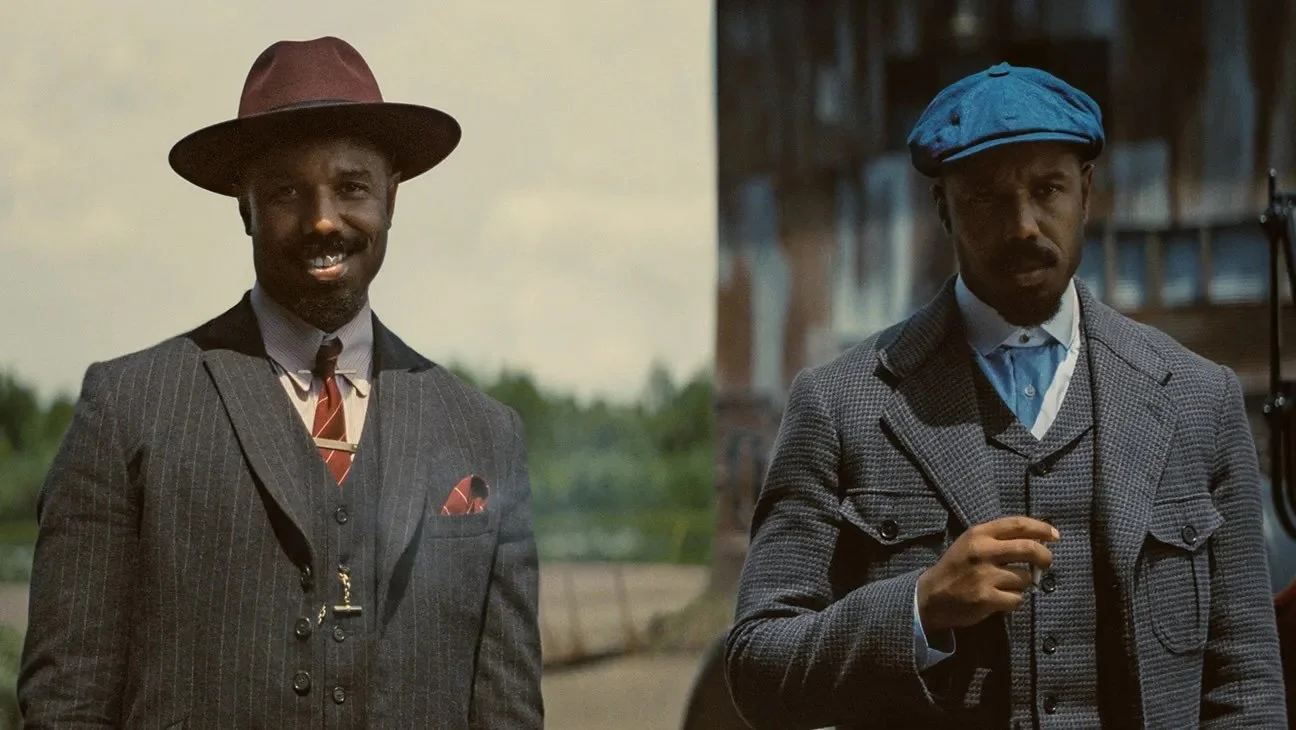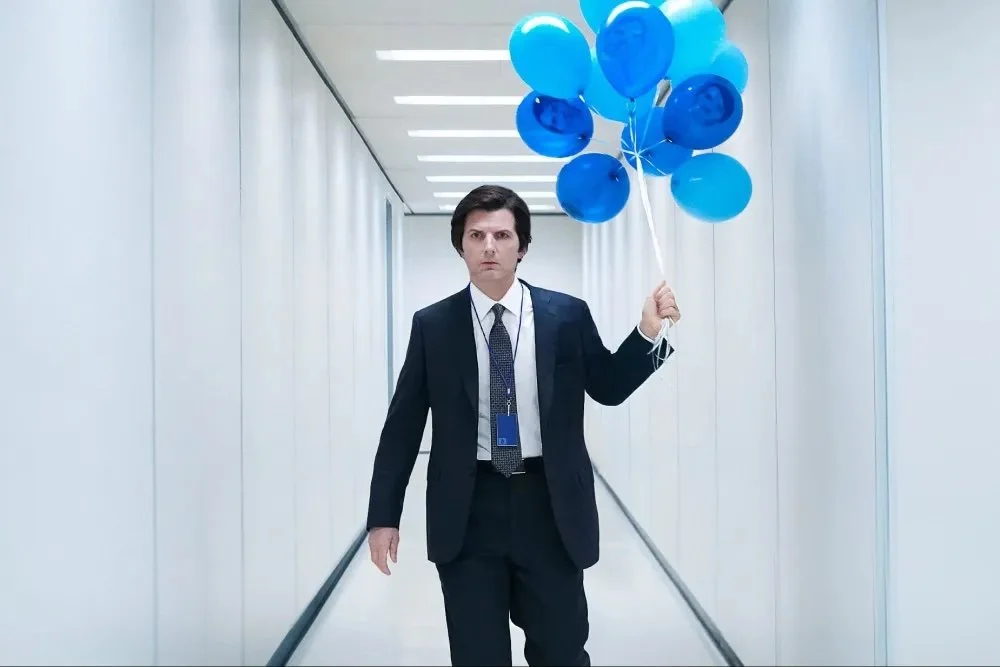The Doppelgänger Isn’t a Trope Anymore — It’s a Survival Strategy: Dual Identities in Film and TV
This year might go down as the year of the doppelganger and rightly so. Many of this year's strongest narratives in film and television have featured twins, split identities or some other futuristic idea of self-replication. The twin theme first showed up in Coralie Fargeat’s The Substance (2024) last winter, then the much-anticipated Mickey 17 (Dir, Bong-Joon Ho) landed to confirm multiple identities on screen weren’t going anywhere. Mickey 17 came as director Bong-Joon Ho’s first feature since the incredibly successful class commentary Parasite in 2019. Though vastly different stylistically and tonally, Bong-Joon Ho continued his interest in class discussion through the self-replication of character Mickey (Robert Pattinson). Commenting on political turmoil and how absurdly out of touch the upper class continue to exist in the face of the everyday man, much of the narrative is carried by a POTUS inspired performance by Mark Ruffalo. The film largely warns how little empathy exists amongst those in power, those whose mission in office continues to reflect the old slogan of Gold, Glory and God. One Earth does not seem to be enough just as existing as one person no longer seems to be. Layering that double metaphor of multiple individuals existing in a time where multiple physical Earths are needed to meet our demands, might also reflect the impact we feel in an epidemic of self-improvement and manifestation of your dreams amongst overly anxious young adults. The message to me at least, that once the damaged individual is beyond repair, we can always carry out a procedure to replicate and improve, though who's to say those parasitic cycles won’t tempt their way back into our behaviour?
The social talk on multiple identities was soon continued as the long awaited season 2 of Dan Erickson’s Severance meant our Oliver Twist moment of subconsciously calling into the ether, “Please Sir, I want some more”, was quickly slopped down to us without contention like poor Olly. Images of individuals as unhappy as Mickey about their day job in Erickson’s world were instead offered a process of Severance, an opportunity to split their consciousness into two identities. The show delves into the idea of having an “innie”, the severed individual who retains all work memories, and an “outtie”, an individual who retains all real world memories. These two consciousnesses from the same person maintain similar personality traits without the mess of the memories that made them who they are in the first place. Workplace “innies” are stuck in a continuous loop of labour for the ominous Lumon industries who employ them, while the “outies” don’t really know exactly what it is they do for work. And perhaps more so than Mickey 17, globally we were hooked. The show was relatable in expressing how the feeling of passing time via meaningless tasks in order to make rent can be dehumanising.
If these two moments weren’t enough, Ryan Coogler out of almost nowhere (seemingly an intentional press move) entered the scene to offer a feature length 1930s set horny vampire horror starring Michael B Jordan in twin leading roles of Smoke and Stack (and I mean who wouldn’t want to watch two Michael B Jordan’s for over two hours…). The film’s Smoke Stack twins return to their hometown after a stint in Chicago working for Al Capone. The identical twins rely on each other as a force of intimidation working in harmony when rhey speak and fight, and subtly having the combined force of the two twins allows them to open up their new juke joint in record time. Splitting up to run errands allows them to get more done, a days worth of tasks for one man meant by nightfall the venue was up and running, another example of almost identical minds and bodies getting done the work one man surley would have struggled to. After watching Sinners I immediately wished I could forget the entire movie and watch it again properly in IMAX (as I’d come to learn there were multiple format versions of the film made). Though as I write this I’ve watched the film a total of three times in cinema, on the first watch it was the first time in a longtime that presented a quick escape into a world of familiar tropes done so differently. Watching the film for myself and friends had a similar buzz to when The substance was out and once in our seats it wasn’t long before we reached the edges of them, palms sweaty and shouting at the screen for certain characters to not stand too damn close to that door!
So yes, clearly something is in the air right? Why are we currently so fascinated with exploring these stories so reliant on the idea of multiple identities? I mean the most interesting element isn’t anything pro-creational in these beings, they all stem from yourself, I mean procreation is boring we see and know that world, but the idea of creating something new from the self, the opportunity to become something distinctly desirable while maintaining our personalities (or at least the parts of them we want to maintain) is actually an entirely egotistical pursuit. Dreaming of these worlds where we can be more than ourselves is more depressing than a reflection of how burnt out many of us seem to find ourselves, but it ignores the bigger issues in the world where even existing and surviving as an individual is more than a blessing. Surely we have bigger issues in our world that demand prioritising over multiplying ourselves to reach career goals?. The other most interesting part in these films and stories is first admitting that within our day to day lives we already, much like Mickey 17, exist as multiple versions depending on the day, the weather, who we are around. Whether in the sense of a Jungian mask wherein these other versions might protect us in certain spaces, we already know exactly how different we can be and no one true “version” of ourselves can exist for that reason.
We wear our own doppelganger skins every day, in fact I imagine it’s close to impossible to have just one perception of ourselves to the worlds we exist in. Despite acknowledging how differently we show up in different spaces, if an actual medical procedure for severance became a realistic opportunity, who wouldn’t take the chance to release our sexiest, most confident and unashamed version of yourself? I’m sure many of us would choose to remove parts of ourselves we felt might be holding us back in life and maybe that would create a more honest world? Though like with Mickey’s 17th copy, there's always the chance you might become something you don’t want to be, but surely that’s the risk? However, a slightly narcissistic scientific quest, aren’t (I mean I hope…) we always looking to become a better version of ourselves? And maybe a quick re-print would save a bunch of time on the “inner work” we spend trying to heal and improve ourselves.
Whether you want to multiply your idiosyncratic anatomy and mind in order to achieve your goals or not, there was a research study conducted by HR review in England that concluded that 35% of UK employees surveyed would choose severance or a similar procedure to separate work and personal memories, and 43% of GEN Z surveyed wished to sever themselves.
Two identities, two consciousnesses, work mode and play mode. Is this alarming? I don’t think it’s too surprising that the figures are so high. Not only is there now a tangible figure to reflect a work-place depression, but the films and TV shows we feel we can relate to most are showing us exactly how we feel. So yes, one is not enough, we all wish we could somewhat if not completely check out of work
The twin trope is nothing new – think all the way back in 1961’s The Parent Trap where instead the idea of having a duplicate of yourself was used to bring two ex-lover parents back together. Similar thread, completely different use, completely different outcome.
Feeling overworked in an age where our peers seem to be at such a vast financial disparity is also completely understandable. We live in a time where one right post on Instagram or TikTok could change the trajectory of your life, inviting you into a world of influencer-influenza. Dissatisfaction must surely be at an all-time high despite the honour of having the world at our fingertips a constant when or why not me? If you have already seen Sinners you’ll remember this important moment (if you have yet to watch it spoiler ahead). There’s a line in Sinners after twin Stack’s death, Smoke says something along the lines of “the best thing about me is him”, powerful words.
Is it easier for us to project greatness into others and rather than ourselves? Maybe it’s actually just easier for us to idolise our own other selves, the same versions we can be on nights out, or with the right friends but just can't seem to uphold 24/7 when real-world anxiety, lack of sleep or whatever else it is that interferes with our ability to be our best self. When Mickey 17 was in its release run, as a big supporter of Director Bong-Joon-Ho’s work I asked everyone and anyone I saw what they thought. This included bumping into artist THE DARE on Kingsland High Street (yes, I have major cinema brain because when I met the dare of girls and I destroyed disco my fan girl sesh led to what he’d last watched) I asked him his thoughts to which he said the ending felt similar to James Cameron’s 2009 Avatar finale battle (which I agree for better or worse, I mean that’s when the Na’vi get their revenge so I’ll take it). What’s most interesting is how all these films in conversation with one another represent a creeping dystopia in our everyday world, “1st-world” problems or not, these narratives invite us to look at our past in order to imagine a fragment of what our future could be for better or worse.
2025’s twin theme has forced us to confront our societal disorientation, a need to disrupt the cycles we allow by choice or by force to exist within. When rent is due and dinner needs to be eaten, it’s hard to take a step back and slow down. As I’m writing this now I imagine how if another me was writing beside me this would have been completed sooner. Our lives have always taken a village to be truly fulfilled and that will never change, reminding ourselves that the individual is a necessary part of the collective. So yes the individual is dying, but hopefully it makes us look instead to how important building community and our own villages is to not allowing ourselves to fall apart as the individuals we have to be, at least for now.



